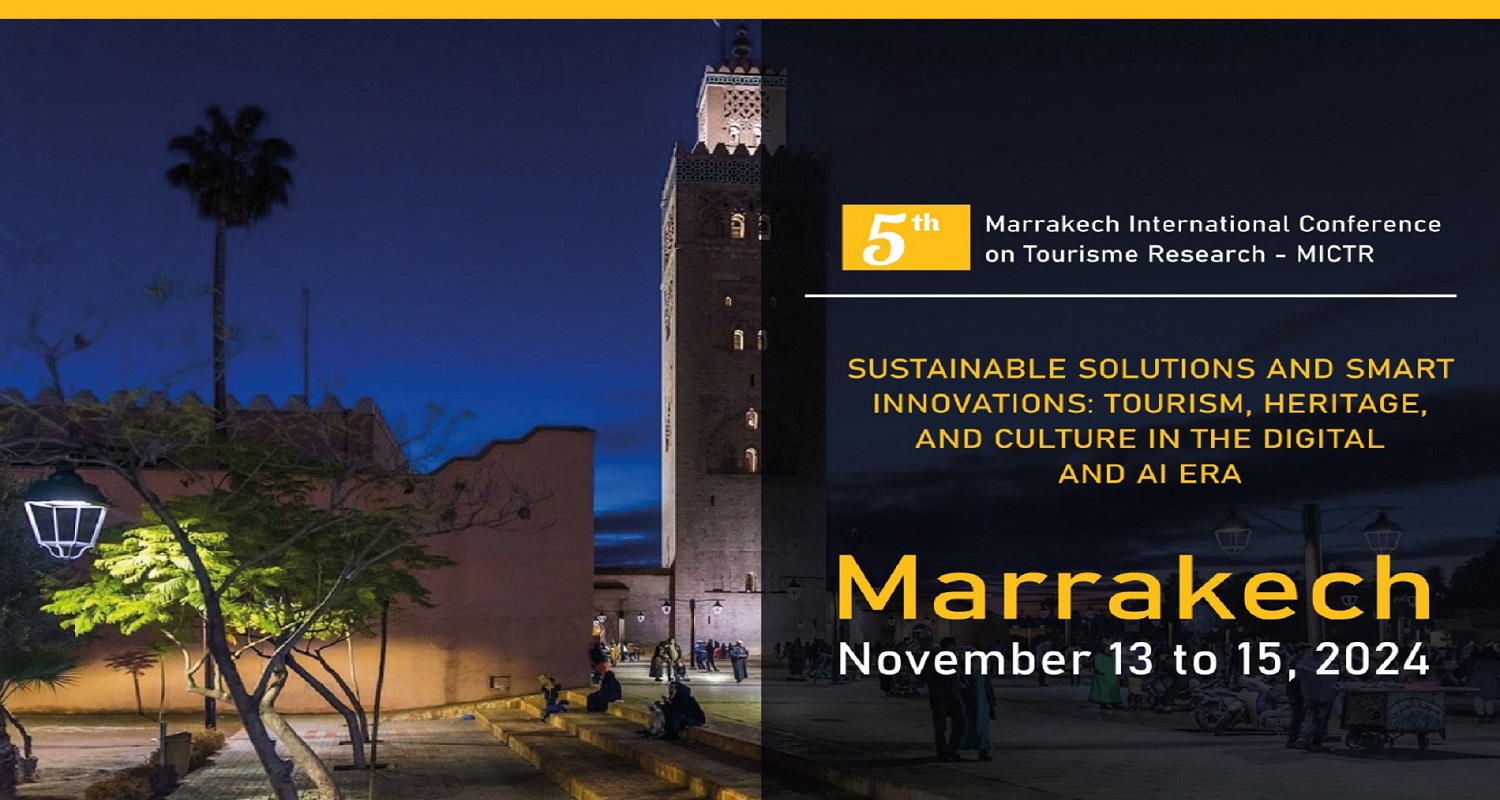
About the Conference

The rapid expansion of digital technology and artificial intelligence represents a major transformation in tourism and heritage, exerting a significant influence on tourist destinations (Tsaih et al., 2018; Barnes, 2022; Brezovec, 2022; Li et al., 2022). Digital technologies and artificial intelligence can improve the experience of tourists visiting historical sites, museums, or other tourist destinations (Camilleri and Troise, 2023; Dangwal, et al., 2023).
These technologies can enable tourists to get more detailed information about places, their history, culture, and other important facts. In addition, digital technologies can help tourists find key attractions more easily, avoid waiting in lines, and plan their trip more efficiently. On the one hand, the integration of these advanced technologies has significantly improved accessibility to previously littleknown destinations, offering explorers the world over new opportunities for discovery. Digital platforms and digital marketing strategies have opened unprecedented avenues for the development of small local businesses, stimulating tourism activity in previously little-visited regions (Li et al., 2022; Saeed Farahat et al., 2022). The result is a more balanced redistribution of visitor flows and a boost to local economies.
On the other hand, digital technologies allow more efficient management of visitor flows in tourist destinations, optimizing their experience and ensuring sustainable use of heritage sites and natural resources (Zamlynskyi et al., 2018; Brezovec, 2022; Kumar, 2023). This allows heritage objects to be protected from excessive damage and preserve their authenticity and environment for future generations (Grizane, 2023).
However, this development also presents problematic aspects: the growing popularity of certain destinations can lead to over-visiting, raising management and sustainability issues. Intensive use of natural and cultural resources can also damage the integrity of heritage, as well as violate the rights and legitimate interests of residents and other tourists (Ferraz and Serpa 2021; Wu et al., 2022). For example, the aggressive promotion of tourist sites on social networks is likely to increase the amount of waste generated and disrupt the ecological or cultural balance of the places concerned. It is therefore imperative to devise an appropriate planning and regulatory strategy to accompany the deployment of digital technologies and artificial intelligence, to guarantee sustainable enhancement and conservation of heritage.
In short, while the advent of digital technology and artificial intelligence offers enriching prospects for the development of tourist destinations and the enhancement of heritage, it is essential to strike a judicious balance (Sobhani et al., 2022). We need to navigate between exploiting these technologies to foster livability and the imperative need to preserve natural and cultural resources. Adopting a thoughtful, collaborative approach is crucial to addressing the potential challenges and maximizing the benefits that these technological innovations can bring to the tourism and heritage conservation sectors. Thus, the rapid development of digital technologies and artificial intelligence has brought great benefits to both the tourism industry and the preservation of heritage sites, promoting the sustainable development of tourism, and contributing to economic growth. It is crucial to continue using these technologies based on their positive impact and potential. It is also important to consider security and personal data protection issues. When we are using digital technologies in the field of tourism as well, it is necessary to ensure the protection of personal data too.
This call for papers therefore aims to bring together original articles. Proposals for publication may fall within any of the following themes (non-exhaustive list):
Conference Themes
- Sustainable strategies and digital tourism marketing
- Artificial intelligence and sustainable management of tourist destinations
- Sustainable development and the impact of digital innovations on ecotourism
- The role of Big Data in optimizing the sustainable tourism experience
- Artificial intelligence and heritage sustainability
- The role of sustainable management in the evolution of tourism and heritage
- Collaborative and participatory models in cultural and heritage tourism
- Challenges and opportunities of digitalization for World Heritage sites
- Heritage enhancement in the digital age
- Legal issues related with Tourism, Heritage, and Culture
- Tourism, territory, and technological innovation
- Eco-innovations in the tourism sector
- Creativity and digital technology: towards new forms of tourism
- AI integration and tourism flow management
- Artificial intelligence and heritage conservation
- Augmented and virtual reality applications in heritage and tourism education
- The challenges of security and privacy in e-tourism
- The impact of social networks on the promotion of sustainable tourism and heritage
- Individual's right to a clean and safe environment

Jessika Weber
Breda University of Applied Sciences Academy for Tourism

Stanislav Ivanov
Varna University of Management Co-Editor-in-chief of European Journal of Tourism Research

Marc Bidan
Economics and Management Laboratory (LEMNA) Polytech Nantes

HAMID BENTAHAR
CEO of Accor Gestion Maroc President of the National Tourism Confederation


